 Petzlover
Petzlover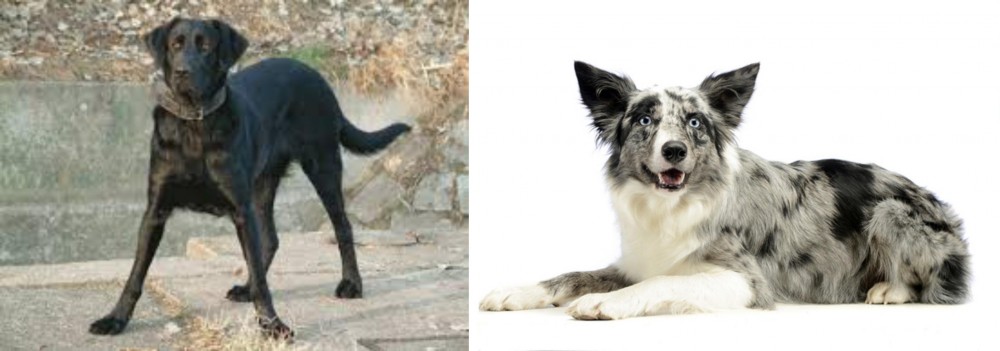 Cao de Castro Laboreiro is originated from Portugal but Koolie is originated from Australia. Both Cao de Castro Laboreiro and Koolie are of same height. Cao de Castro Laboreiro may weigh 46 kg / 102 pounds more than Koolie. Cao de Castro Laboreiro may live 6 years less than Koolie. Cao de Castro Laboreiro may have more litter size than Koolie. Both Cao de Castro Laboreiro and Koolie requires Low Maintenance.
Cao de Castro Laboreiro is originated from Portugal but Koolie is originated from Australia. Both Cao de Castro Laboreiro and Koolie are of same height. Cao de Castro Laboreiro may weigh 46 kg / 102 pounds more than Koolie. Cao de Castro Laboreiro may live 6 years less than Koolie. Cao de Castro Laboreiro may have more litter size than Koolie. Both Cao de Castro Laboreiro and Koolie requires Low Maintenance.
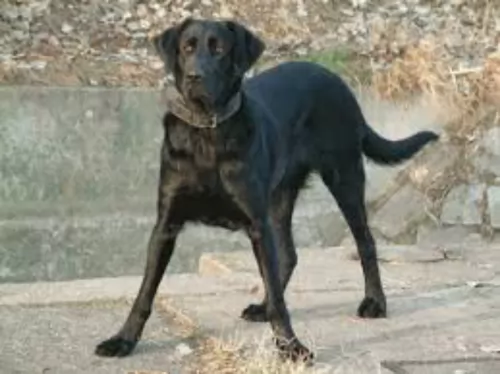 Cão de Castro Laboreiro originates from Portugal. Also known as the Portuguese Cattle Dog he was used long ago to guard livestock. Today, the modern Cao de Castro Laboreiro is descended from the molosser type dog.
Cão de Castro Laboreiro originates from Portugal. Also known as the Portuguese Cattle Dog he was used long ago to guard livestock. Today, the modern Cao de Castro Laboreiro is descended from the molosser type dog.
There are hints to the dog's origins from the 19th century, but changes in agricultural methods meant a disappearance of the dog as a livestock protector. Today the dog is mostly kept as a pet and was first seen at a dog show in 1914.
The Cão de Castro Laboreiro is recognized by the Fédération Cynologique Internationale as well as being recognized by the United Kennel Club in the United States.It is a rare dog and not many exist today but in Portugal, the USA and United Kingdom you will find a few breeders.
 The Koolie's ancestors were both the smooth coated blue merle Collie as well as the Black and Tan Collie. The dog hails from Australia.
The Koolie's ancestors were both the smooth coated blue merle Collie as well as the Black and Tan Collie. The dog hails from Australia.
Looking much like the Heeler dog, the Koolie is thought to have got its name from German immigrants to Australia who couldn’t pronounce the name ‘collie’ properly, so the name came out as Koolie. The Koolie of today is a product of a cross between the German Koolie and the Australian Dingo.
The dog has been around for a long time and in 2000, the Koolie Club of Australia was formed. It was in 2004 that the Koolie was recognized by the Australian Sporting Registrar. In May 2006, the Stockdog Committee of the Australian Shepherd Club of America accepted the Koolie as a recognized and accepted herding breed.
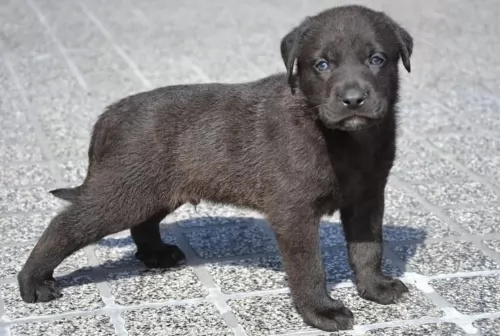 The Cão de Castro Laboreiro is a large dog, with height being in the region of 55 to 60cm and weight being in the region of 45 - 70kg. People describe the dog as wolf-like with a coat that is fairly short, thick and course. The coat is brindle with a base color of shades of grey, chestnut and black.
The Cão de Castro Laboreiro is a large dog, with height being in the region of 55 to 60cm and weight being in the region of 45 - 70kg. People describe the dog as wolf-like with a coat that is fairly short, thick and course. The coat is brindle with a base color of shades of grey, chestnut and black.
This large mastiff-type dog always has a black nose, his tail is long and carried high, but never curling over the back. He has a broad head and is much like the Labrador in looks, being free of wrinkles on the face.The ears of the Cao de Castro Laboreiro are medium-in-size and floppy while the eyes are dark brown.
The Cao de Castro Laboreiro makes an excellent pet as he forms strong bonds with his human family. He is territorial and makes an exceptional guard dog. He doesn’t particularly like strangers and is aloof around them.
This is an intelligent dog breed, he is strong-willed and stubborn, but when he is around the children in the family he is gentle and loving. When he has been trained and socialized, which is always highly recommended with every dog, he gets along with other pets in the home too.
 Known also as the German Koolie or German Collie, the Koolie is a working- or herding dog standing at between 40 – 60cm in height and weighing up to 24kg.
Known also as the German Koolie or German Collie, the Koolie is a working- or herding dog standing at between 40 – 60cm in height and weighing up to 24kg.
The Koolie's coat is a merle coat pattern in red or black and possibly with some tan and is mostly short and smooth, though it can be medium length too. Depending on the coat color – red or black – the nose and eyes can be either brown or black, although eye color can also be blue or yellowish.
The Koolie is such a wonderful pet who has some excellent characteristics to his name. He is active, energetic, fun, clever, friendly and playful, but if you have him trained and socialized he becomes even more of a great family pet. He is intelligent too and will require an owner who is steady, firm, fair and consistent. You wouldn't call him an aggressive dog
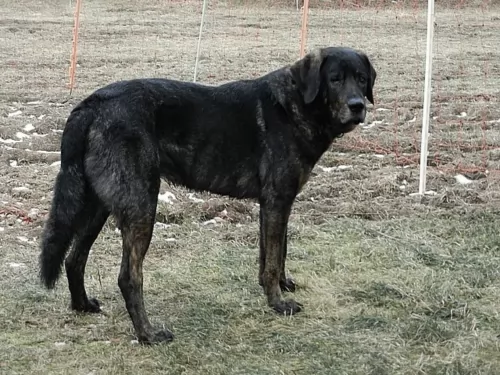 Environment and upbringing have plenty to do with how a dog turns out. People who just buy a dog for guardian purposes and nothing else can’t expect companionship in return.
Environment and upbringing have plenty to do with how a dog turns out. People who just buy a dog for guardian purposes and nothing else can’t expect companionship in return.
The Cão de Castro Laboreiro has always been a fearless guardian of livestock with his strong protective characteristics. He is intelligent and recognizes that a child in the family needs his protection.
This is a large dog who is strong, brave and intelligent but with his human family he is gentle, loving and loyal. Nonetheless he still requires a firm owner, and if you’re fair and firm with him you get the best with him. With this dog you can form a close friendship and bond.
 Many people today like the idea of a ‘wild’ animal as a pet, and the Koolie, with his Dingo ancestry, can be a challenging dog breed to keep. People eventually blame these animals for having a poor temperament – meantime all they are essentially, are high-energy animals.
Many people today like the idea of a ‘wild’ animal as a pet, and the Koolie, with his Dingo ancestry, can be a challenging dog breed to keep. People eventually blame these animals for having a poor temperament – meantime all they are essentially, are high-energy animals.
If you keep a Koolie, it will be better if you were a firm, kind, patient, consistent dog owner who understands the special needs of these kinds of dogs. They’re an energetic, care-free animals who will do better on a large property or farm as he is lively and will need a good deal of exercise.
He is quite capable of being a splendid pet with training and socialization and will settle down well to family life when he is loved and cared for.
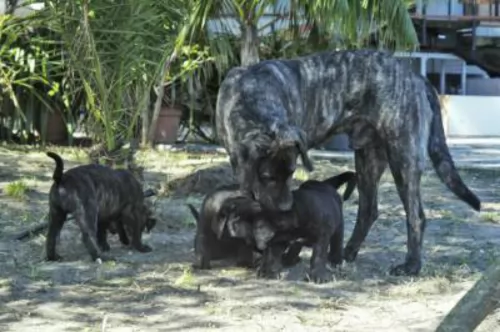 The Cão de Castro Laboreiro is generally a healthy breed, but even so, it is good to be aware of typical canine diseases that your pet may develop.
The Cão de Castro Laboreiro is generally a healthy breed, but even so, it is good to be aware of typical canine diseases that your pet may develop.
There are many eye problems that dogs have to contend with and if you see any kind of ulceration in your dogs eye, get veterinary advice.
A dog should always have access to a shady spot. Never ever leave your dog in a hot car. Heat builds up quickly and death can result soon as the body temperature rises.
Roundworm and tapeworm can infest dogs and you’ll need to speak to your vet about a worming program. Lice, mites and ticks are all parasites which attach themselves to the skin.
 The Koolie is a long-lived dog and there are records of it being able to reach 18 years of age. Because they have a diverse gene pool, you won’t find many genetic problems with this dog.
The Koolie is a long-lived dog and there are records of it being able to reach 18 years of age. Because they have a diverse gene pool, you won’t find many genetic problems with this dog.
It is always wise when you’re the owner of a dog, to look out for his health and wellbeing -
This is to prevent your Koolie picking up fatal diseases such as distemper and parvo-virus. Dogs can be vaccinated from 6 weeks of age for protection.
Working dogs like the Koolie are susceptible to parasites such as tapeworm. Worming of your dog can be included in your vet visit. Dogs with worms may show tell-tale signs such as being pot bellied, very pale gums, anemia and a dull, thinned coat.
A look at his droppings may reveal white segments or worms. Fleas are another kind of parasite and they breed quickly in warm months. Mange is a skin disease caused by small parasitic mites which can actually live inside the hair follicles of dogs. Veterinary treatment will be required.
This is when your pet’s temperature rises out of control. Dogs pant to reduce their body temperature so a dog puffing heavily is putting in extra work to reduce his body temperature.
Never leave you pet in a boiling hot car as the body becomes weak and he has difficulty with breathing. Without immediate treatment, the dog will collapse and die.
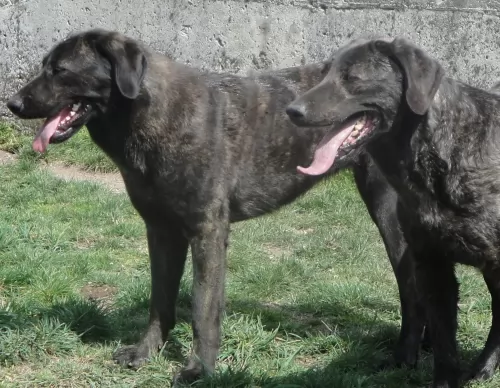 The Cao de Castro Laboreiro has a short coat which requires minimal grooming. Brushing him twice a week to rid him of loose hairs will suffice.
The Cao de Castro Laboreiro has a short coat which requires minimal grooming. Brushing him twice a week to rid him of loose hairs will suffice.
Nail clipping as well as ear- and teeth cleaning are other routine maintenance procedures for your pet.
The food you give your pet must be well-balanced and have protein and carbohydrates. If you want his skin and hair to remain healthy, vitamins, fatty acids and minerals will also be needed.
Boneless chicken and fish, brown rice and vegetables can be a good choice as well as some of the top quality commercially manufactured foods. An active dog will always need a higher protein content and therefore including raw meat into the diet is imperative – not every day as it can be very expensive, but every other day.
Remember that bones can be dangerous as they can splinter and cause your pet internal damage. Fresh, cool water must be available at all times.
 The Koolie is an intelligent dog that will benefit from training and socialization to make him obedient and able to cope in diverse situations.
The Koolie is an intelligent dog that will benefit from training and socialization to make him obedient and able to cope in diverse situations.
These dogs show an untiring enthusiasm for exercise and work and wherever you live, you will need to ensure that he gets regular exercise.
Only the very best - both home-made and commercially manufactured food - will be good enough for this energetic dog. Good quality food ensures health and longevity. Always see that there is a constant supply of fresh, cool water.
Make sure that your dog has a warm, dry place to sleep inside and that when outside, he has a cool, sheltered spot from the sun.